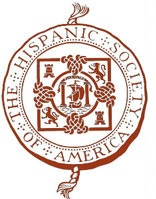 N.Y. / Region
N.Y. / RegionCitywide
Finding, and Refining, a Spiritual Calling
 Suzanne DeChillo/The New York Times
Suzanne DeChillo/The New York Times
The Rev. Earl Kooperkamp, left, and James Ellison of the Fund for Theological Education lead visitors at a subway stop on 125th Street.
 Suzanne DeChillo/The New York Times
Suzanne DeChillo/The New York TimesThe Rev. Earl Kooperkamp, left, and James Ellison of the Fund for Theological Education lead visitors at a subway stop on 125th Street.
Angie Hummel craned her neck and beheld a glass-sheathed Upper West Side tower where luxurious studios sell for more than a million dollars. She shifted her gaze ever so slightly downward to the brick building where Mexican immigrant families cram four people into a single room barely big enough for a bed.
“Oh, my God,” she said. “Nothing like a stark comparison.”
It was that kind of day. Even where she stood — in front of a century-old brick church that was among the few structures not being demolished for new housing on West 100th Street — was a reminder of the price of progress in urban America. Smack dab in the middle of plenty, if not excess, people scrape by anonymously. For a religious person like Ms. Hummel, faith is found while navigating gently between those extremes.
“I have my own struggle of what I am called to do in this world,” she said. “What’s the point if there is still going to be devastation and brokenness, even despite good works? Is God really there?”
That was why she had come to New York last week. She was among 35 young adult volunteers from faith-based groups around the country selected by the Fund for Theological Education to spend a week meeting clergy in several urban ministries. The fund’s officials hoped that they might be inspired to pursue a similar calling, or at least bring a greater grounding in a higher purpose to their secular careers.
This is not necessarily an easy goal for young adults just out of college, since many of their friends are off making money, while they’re living in small groups working in soup kitchens and homeless shelters.
“Their families cannot understand why they’re doing this, because they should be getting a real job or need to pay their student loans,” said James Ellison, who coordinated the program for the fund, an ecumenical organization that seeks to increase the number of Christian scholars and pastors nationwide. “Their friends may admire they’re working with the poor, but they can’t understand this. Coming here, they see it’s not just a few crazy Presbyterians doing this. It gives them a sense that maybe this is not so crazy after all.”
A clear, sobering light filled the dark-wood sanctuary of Trinity Lutheran Church on West 100th Street. The stained glass windows had been put in storage, replaced by plain glass, which revealed the steel skeleton of a new building rising next door. The windows had been removed to avoid damage from the construction. The Rev. Heidi Neumark, Trinity’s pastor, said the church could not afford to put them back when construction ended.
She sat before the visitors, recounting her decision to be ordained. It was a roundabout process, considering that she was not especially drawn to organized religion. She had worked with the poor in her 20s. She had entered the seminary, thanks to a scholarship from the fund that paid for a year of seminary, no strings attached, for young people considering ordination.
“The church needs to be in those places where people feel outside the church,” she said. “For many of you, the important question is, how dissatisfied are you with the church? The church needs people like you.”
She explained to them how she spent 18 years in the South Bronx, a period she chronicled in her well-received memoir, “Breathing Space,” working and living in a community where death and disease struck early and often. Yet she spoke of those years in tender terms, recalling the strength of her neighbors.
Her new church, where she has been for five years, is home to a diverse congregation. Much of the surrounding neighborhood is undergoing a rapid transformation, just as it had in the 1950s when slum clearance made it pretty much the only building left untouched by the wrecking ball. She now wonders what will happen during the current frenzy of development.
Ms. Hummel raised her hand.
“Where do you find hope?” she asked.
Pastor Neumark replied quickly.
“In the community,” she said. “It’s not rational. It doesn’t make a lot of sense. But I find hope in people. In people together.”
A similar message was given to them at the Interchurch Center, where they listened to Willie Baptist, a scholar in residence at Union Theological Seminary, talk about his work organizing welfare recipients and the homeless. Poverty, he said, was the defining issue of the day, and working with the poor — not giving them a handout or a look down — was his solution.
“We are about really loving our neighbor,” he said. “It’s not about people out there, that we have to pity the poor. It’s about the direction of the country. It’s about the role of the church.”
For some in the group, their own roles in the church were slowly coming into focus, too. Lara Shine, a graduate of Appalachian State University, has already begun the formal process of exploring ordination in the Episcopal Church. She had majored in music therapy and likes working with people. Her decision to consider ordination was complicated, she said.
“It’s not like a lightning bolt or getting a text message from God saying you should go to seminary,” she said. “I think God does give us passions we are drawn to. That’s kind of a calling.”
She and the group walked along Broadway, stopping briefly to look at Corpus Christi Church, where Thomas Merton converted to Catholicism. The Rev. Earl Kooperkamp was leading this part of their tour, explaining how the area was changing because of Columbia’s decision to expand its campus into Manhattanville.
A car slowed to a crawl, its driver turning to a silent passenger in the back seat and unleashing a torrent of profanities. Ms. Shine walked along, stopping briefly to pick up some litter.
“Maybe somebody will see me and do the same thing,” she explained.
Father Kooperkamp, the rector of St. Mary’s Episcopal Church, explained that with so many of his congregation living in public housing, he was active in local housing issues. He was also helping his neighbors address health concerns, since he has grown tired of burying people before their time.
He led the group through the bustle of 125th Street, toward the subway to their last stop in the Bronx. Incense vendors jostled alongside T-shirt sellers for customers. Bow-tied men hawked The Final Call newspaper while a woman handed out fliers about H.I.V. prevention.
The group emerged at 149th Street and Third Avenue, where a skinny preacher was half-stooped over and shouting in a frenzy. “God loves you!” he screamed. “All of you!”
They made their way up Melrose Avenue, to the church and friary that was home to the Franciscan Friars of the Renewal.
“Finally!” said one of the volunteers. “Some Catholics.”
Gray-robed friars welcomed them into the cool, dimly lighted church for evening prayer and song. Afterwards, they went downstairs for a meal of rice and pork left over from a recent ordination party. They settled into cafeteria chairs and chatted with various friars.
“These are the giants of compassion for the future,” said Adam Seeley, a volunteer with the Presbyterian Church. “It takes heart to do what they do.”
As much as he admired them, he did not think he would go to seminary. But he also knew he wanted to keep working with the needy.
“For some reason we’re told our generation cares more about Britney Spears,” he said. “But these guys working to end poverty, what is more encouraging than that?”
Upstairs, Ben Bear walked into the empty church. When he was growing up in Virginia, his mother had always told him he would be a pastor. He may go to seminary, though he was not sure if he would go on to lead a congregation. Still, the day had left a strong impression on him.
As he went up the main aisle, his voice echoed while he sang “Dona Nobis Pacem,” “Give Us Peace.” He looked up at the portraits of saints, turned on his heel and slowly walked away. He whistled, ready to join his friends.








+(3).jpg)



.jpg)
+(3).jpg)


No comments:
Post a Comment